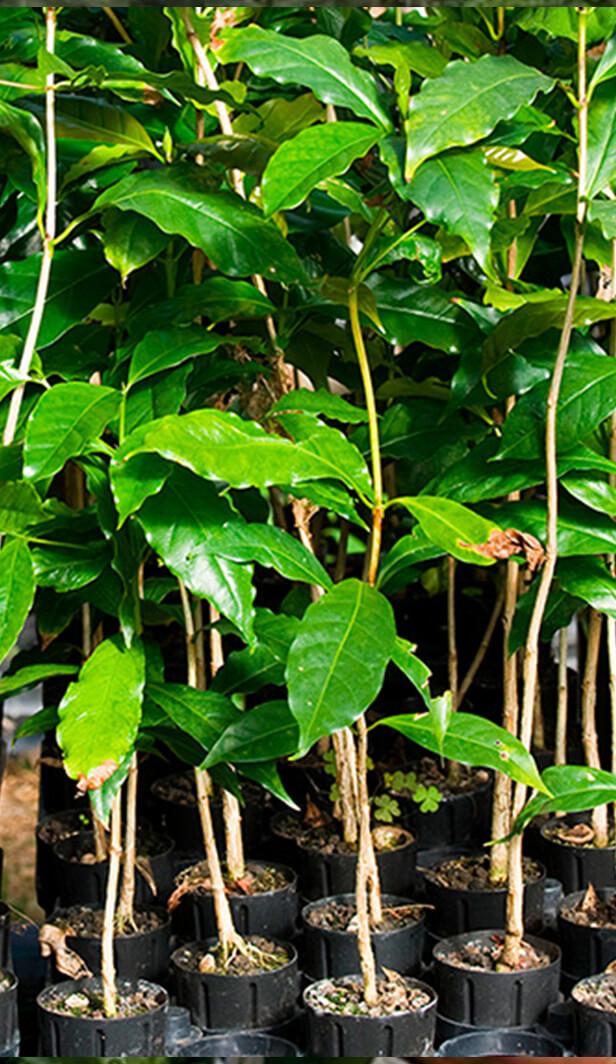Something in the water
Water is one of the world’s most precious natural resources and some of our coffee requires a lot of it to grow. At NESCAFÉ®, we value the water needs of local communities. Today, NESCAFÉ® is helping farmers grow coffee with solutions that aim to protect water resources. In Vietnam, we’ve supported initiatives to help farmers use 50% less water for irrigation than previous official practices, while maintaining the same productivity, and provided smart weather apps to tell when to turn on the taps and when to turn them off to help conserve water for their villages.
In our nearby coffee factories, we’ve helped to improve water efficiency and saved the equivalent of over thousands Olympic sized swimming pools of water every year. Using less water in coffee production helps improve water conservation in local communities, and support the protection of the water cycle. That’s why NESCAFÉ® aims to continue to help farmers do more with less water.

Like you, we're powered by coffee
The coffee grounds left over from the brewing process that makes your cup of NESCAFÉ® are being used to help power the NESCAFÉ® factory in Gympie, Queensland.
The spent coffee grounds fuel a boiler generating the steam needed in the manufacturing process.
The renewable energy that we produce is equivalent to the energy needed to power 10,000 homes (over 40% of the homes in Gympie).
This keeps the spent coffee grounds out of our waste stream, reducing energy used for waste transportation and disposal.

The coffee grounds left over from the brewing process that makes your cup of NESCAFÉ® are being used to power the NESCAFÉ® factory in Gympie, Queensland.

Our packaging
NESCAFÉ® wants to keep coffee fresh, and our customers informed. NESCAFÉ® aims to provide packaging materials such as jars, cartons, capsules, and sachets that create less packaging waste, following Nestlé's commitment: 95% of our plastic packaging will be designed for recycling by 2025.

Inspiring the world of coffee, one cup at a time
NESCAFÉ® aspires to change in how its coffee is grown, sourced, manufactured, packaged, and consumed. Every day, NESCAFÉ® is on a journey towards a circular economy.

Today’s community favourites
Discover some of the most enjoyed articles from across the site




